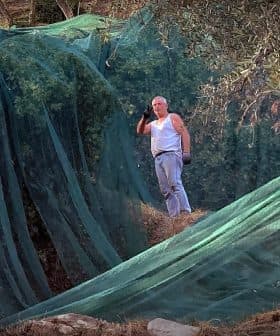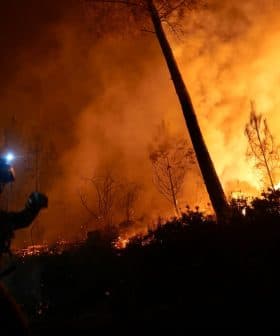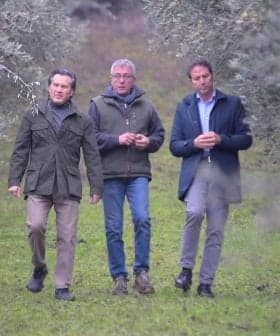Warm Winter and Water Shortages Complicate Harvests for Some Italian Farmers
Olive growers hope that the warm winter does not lead to an early spring bloom followed by a late freeze, as happened in 2021.
 Artichokes at an Italian market
Artichokes at an Italian marketItaly is facing concerns of drought and distorted crop cycles after experiencing the fifth-hottest winter on Earth, with temperatures increasing by 0.15 ºC since 1981. The dry conditions are particularly severe in the northern regions, with water deficits ranging from 50 percent to 90 percent compared to the previous year, threatening national agricultural production and livestock.
After a winter ranked as the fifth-hottest on Earth, Italy welcomes the spring season with two main concerns: the severe drought affecting its northern regions and the distortion caused by the off-season heat to regular crop cycles.
According to the Italian agricultural association, Coldiretti, the average winter temperatures in the second-largest olive oil-producing country in Europe have increased by 0.15 ºC since 1981.
The drought in the Po River Valley threatens over 30 percent of national agricultural production, including tomato sauce, fruit, vegetables and wheat, and half of the livestock of the country.
Moreover, this winter was particularly dry, with one-third less rain and an average temperature of 0.49 ºC above average across the county. The increase was even more pronounced in the north, where the average temperature was 0.97 ºC above average.
The analysis was based on data provided by the United States National Oceanic and Atmospheric Administration’s climate data center, which has recorded global temperatures since 1880.
See Also:2021 Was Earth’s Fifth Hottest Year, Scientists SayFarmers are already feeling the effects of the abnormal heat as various fruits and vegetables mature ahead of schedule. Asparagus, strawberries, peas, broad beans, artichokes and courgettes are already available on market shelves.
“The off-season heat is altering the traditional crop cycles and causing an early awakening of nature, with daisies and primroses blooming in the fields and almond trees, apricots and peaches already in bloom,” Coldiretti said.
Italian farmers fear that upcoming fruit harvests could be compromised by extreme weather events, such as those that complicated the 2020 harvest, as these crops are particularly sensitive to changes in the climate.
To further worsen the situation, alarm over the drought is particularly severe in the northern regions of the country, known locally as Italy’s “food valley.”
Officials estimate the water deficit ranges from 50 percent to 90 percent compared with 2021, deficit peaks in the Piedmont and Veneto regions.
See Also:Producers Express Alarm in Latest Olive Oil Times Survey“The drought in the Po River Valley threatens more than 30 percent of national agricultural production, including tomato sauce, fruit, vegetables and wheat and half of the livestock of the country,” Coldiretti said. “If the dry conditions continue, farmers will be forced to provide water with emergency irrigation.”
While waterways and lakes are at their lowest levels – the Po River’s water levels have fallen by more than three meters at certain points – another primary concern regards the crops sown in autumn, such as barley, wheat and rye. The lack of water may compromise their growth phase.
At the same time, the dry and hard soils might make it challenging to sow corn, sunflower and soybeans, scheduled for the upcoming weeks, Coldiretti added.
Olive farmers will not be concerned yet about the current lack of rain, with the blossoming of the trees unlikely to happen until April or May. However, a hotter spring than normal would be of concern.
Olive trees begin to flower when average daily temperatures exceed 20 ºC. If these temperatures occur too early in the season, the trees are at risk of late spring frosts, which kill the blossoms and mean there will be no fruit.









